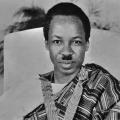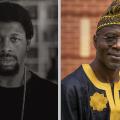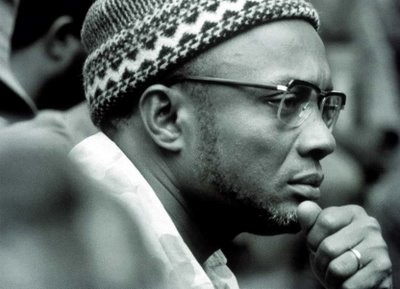115. Weapon of Choice: Amílcar Cabral
Amílcar Cabral, leader of a revolution against colonialism in Guinea-Bissau and Cape Verde, rethinks culture and Marxist theory as bases for his struggle.
Themes:
• Return to the Source: Selected Speeches of Amilcar Cabral (New York: 1973).
• M. Wolfers (trans.), Unity and Struggle: Speeches and Writings of Amílcar Cabral (New York: 1979).
• D. Wood (trans.), Amílcar Cabral: Resistance and Decolonialization (London: 2016).
---
• P. Boele van Hensbroek, Political Discourses in African Thought: 1860 to the Present (Westport: 1999).
• P. Chabal, Amílcar Cabral: Revolutionary Leadership and People’s War (Cambridge: 1983).
• R.H. Chilcote, Amílcar Cabral’s Revolutionary Theory and Practice (Boulder: 1991).
• J. Fobanjong and T. Ranuga (eds), The Life, Thought and Legacy of Cape Verde’s Freedom Fighter Amílcar Cabral (1924–1973): Essays on His Liberation Philosophy (Lewiston: 2006).
• J. McCulloch, In the Twilight of Revolution: The Political Theory of Amílcar Cabral (London: 1983).
• C.F. Peterson, DuBois, Fanon, Cabral: The Margins of Elite Anti-Colonial Leadership (Lanham: 2007).
• R. Rabaka, Concepts of Cabralism: Amilcar Cabral and Africana Critical Theory (Lanham: 2014).
• T. Serequeberhan, The Hermeneutics of African Philosophy: Horizon and Discourse, (New York: 1994).
• A. Tomás, Amílcar Cabral: the Life of a Reluctant Nationalist (London: 2021).






Comments
Cabral, Nyerere, Nkrumah,…
Cabral, Nyerere, Nkrumah, Mandela.. Judging from the number of episodes they get, it seems that all these African politicians are also philosophers of the rank of Parmenides. I wonder if we will also have programs on Idi Amin and Mobutu sese seko... If not, why not?
If being a socialist is a necessary and sufficient condition to be included in the list, why Gamal Abdel Nasser, an African and a Socialist, is excluded?
In reply to Cabral, Nyerere, Nkrumah,… by mehmet
Nasser
That's a good point about Nasser, I will ask Chike about this. He's probably someone I should have discussed when I did 20th c Islamic philosophy (though there are lots and lots of figures I missed out there of course, that could have been a series all on its own and maybe I will come back and do this some day). I guess there would be a question about whether Nasser's ideas were sufficiently tied to an Africana perspective, as opposed to being more about the Arab world which is only partially overlapping with Africa. But there are, as I've often said, many ways to cut the cake of the history of philosophy.
Anyway, more generally the reason to include some of the African independence leaders and not others is that people like Cabral, Nkrumah etc were not just socialists; they wrote sophisticated philosophical works (or gave speeches) advancing innovative ideas within a broadly socialist framework; they also had things to say on other issues, e.g. the nature of Pan-Africanism, the value of traditional cultural forms, the strengths and weaknesses of Negritude, etc. I mean, there is a quote in this very episode on Cabral that could have come from a technical theoretical work on Marxism by a professional academic. It reminds me of the overtly philosophical material we looked at, for instance, when discussing Alain Locke's aesthetic theory.
Cabral and others have also been very influential on subsequent Africana thought, also in the diaspora (we mentioned that Baraka and others were inspired by his works), and you'll get a really deep sense of that in the next episode which will be an interview about Cabral's thought. So the point is certainly not just that he and the others you mention were political leaders, that is actually kind of an incidental point though of course it helps explain why their ideas have been so prominent and influential.
In reply to Cabral, Nyerere, Nkrumah,… by mehmet
Not much to add to what Peter said
Being a socialist and an African are not sufficient, as Peter points out. Certain figures are especially known for their philosophical contributions, so they are the ones we are highlighting.
About Idi Amin... I don't know of any scholars who treat him as a philosophical mind worth paying attention to, though it's worth noting that Fela Kuti - a musician who we will feature as an important philosophical figure of late 20th century Africa - had a lot of respect for him as a leader (which I don't really understand).
Mobutu is a more interesting case as he more clearly had philosophical aspirations. Honestly, I do think he could sensibly be part of the headline of an episode if we chose to do that, but we've got so much we want to say about the 20th century that I don't think we will. Part of why I think he could make for a good *part* of the headline of an episode is that there is a very important story to be told about how professional African philosophers living in the Congo/Zaire accommodated themselves to or chose to challenge his philosophy of authenticité. We did touch on this briefly in episode 27, while discussing Paulin Hountondji, but there's way more that could have been said.
Coming back to Nasser, though, I agree with Peter's thought that he would have fit in most naturally in the series on philosophy in the Islamic world, because he is best known for his concern for Arab unity, not African unity. He and other pan-Arabist leaders who worked to modernize while making proper room for Islam would have fit perfectly in an episode coming directly after Peter's episode 193, on Abduh and Iqbal.
Political Philosophy of Post-Colonial Africa
Hello Peter and Chike,
Thanks for another cracking episode. Guinea-Bissau is so understudied so I celebrate Cabral's representation here!
I'd like to offer a small bit of feedback, which I hope you will find constructive. I'd love to know more about the debates post-colonial African political philosophy, around e.g. multi-party systems vs command and control development, criticisms of Western model institutions vs defence of the rule of law (etc), authenticity vs progress. Where you've put those front and centre, like in that stellar episode on Awolowo and Azikiwe, it has been really compelling.
On the other hand, I'm worried that in episodes like this—admittedly to a greater extent with Nkrumah and Nyerere—your focus on one personality, their thought, and a sympathetic attempt to understand it means the counter-arguments fade into the background. Perhaps such counter-arguments are to some extent lost in this already very large series, interspersed with thought on many other issues. I don't mean to criticise you for any of this, it just results in the problem that the issues retreat behind the personalities.
I know you can't change your whole format or your schedule just because of what I think, but if you reckon I'm onto something, I'd like to suggest that you take some more time for comparing and contrasting the figures in the episodes.
In reply to Political Philosophy of Post-Colonial Africa by Isaac of York
Debates
Thanks, that is indeed helpful and constructive feedback! I think that this might be something we could work into our end of series discussion - as usual I will do an interview with Chike where we look back and that would be a natural moment to look at how different thinkers clashed, explicitly or implicitly. I would note though that we have had other examples of healthy debate besides "Awo and Zik", like King vs X, and the debate in the recent Black Theology episode between Jones and Cone.
How are we looking as far as ETA for Far Eastern Philosophy?
Hi Peter & Chike,
I'm caught up on everything, the main podcasts, the Indian ones, this Africana series. I've enjoyed every single one and many have led me to interesting philosophical pathways of discovery. Without diminishing this excellent Africana series in any way shape or form, I am eager to learn more about the Far Eastern Philosophical streams as you had indicated would be the next branch you'll tackle. Have you a timeframe for this next branch of Philosophy? And to reiterate, I am thoroughly appreciating this series, so it isn't a critique or worry that this series will get bogged down for whatever reason. I'm just eager to get to this stuff (just read the amazing Van Norden translation of the Mengzi). And after that Far East series, I know there are amazing other traditions and philosophical pathways to travel around the globe. I hope you get to cover all of them eventually. I do worry that the internet will change dramatically over the next ten or so years and everything connected to that, including podcasting, will also change immensely. I can't say how that will manifest, but it might be something to be mindful of as far as completing your full project, and would like to have someday in one big HoP podcast folder. Kind of like how people used to collect those Will and Ariel Durant books, but updated obviously. Thanks!
In reply to How are we looking as far as ETA for Far Eastern Philosophy? by Christopher
Chinese philosophy
Yes, the plan is to start classical China (with co-author Karyn Lai) immediately after Africana ends which, we think, will be late this year (2023).
I have often wondered about your point about the changing internet. When I started, I was not confident that podcasting would be "a thing" for another 10 years - as it turned out it is much more of a thing than it was then. And I'm hopeful that there will always be a place for a downloadable audio file, and that it will remain possible to use .mp3 files so they don't all need to be converted down the line. So, in theory, maybe HoPWaG will still be useful long into the future. Let's hope so! Thanks for your support.
Add new comment